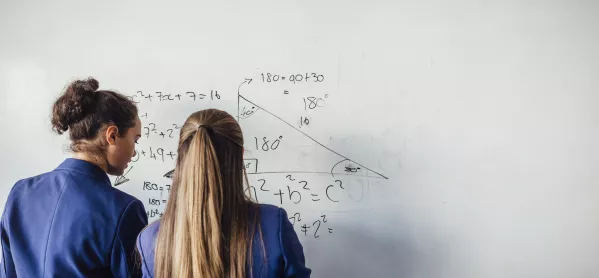The exams regulator has upgraded GCSE mathematics grades after the National Reference Tests indicated there should be a “statistically significant” rise in scores at grades A/7 and C/4.
This has been used to counteract schools’ “severe” judgments of their pupils’ GCSE maths outcomes, Ofqual said.
The watchdog’s reference tests sample Year 11 pupils to ensure that any increases or decreases in performance in maths or English from previous years can be reflected in a cohort’s GCSE results.
GCSEs 2020: 3Rs top grades and pass rates soar
GCSE results day 2020: U-turn means record top grades
GCSEs 2020: French and Spanish revival continues
Ofqual said that the changes seen in maths performance were “statistically significant compared to the baseline of 2017 and continued a trend observed in previous years”.
The regulator therefore decided to increase maths grades at grade 7 by 1.4 percentage points this year, and by 1 pp for grade 4.
“A statistically significant upward trend across the four years tells us that the four years of NRT maths data can reasonably be summarised as showing a steady increase in student performance,” the regulator said.
The results were used as part of Ofqual’s statistical modelling to standardise teacher-assessed grades this year and to calculate what were expected to be final grades before Monday’s U-turn.
While that change meant that students would receive the highest grade out of their calculated or teacher-assessed grade, Ofqual said that in maths, moderated grades would often be higher than teacher-assessed one.
“In many cases, the calculated grade will be higher than the CAG because the evidence from the statistical standardisation suggests that the school’s judgements were a little severe, but in other cases, it is likely to be a result of the small adjustment [from the reference test] applied to the statistical predictions,” the regulator said.
“Therefore, we believe that the adjustment has been taken into account and will be reflected in the grades issued to students this summer.”
This year, 4.2 per cent of students achieved the highest grade - grade 9 - in maths, up from 2.9 per cent last year.
And 66.6 per cent of students passed - up from 59.6 per cent last year.





